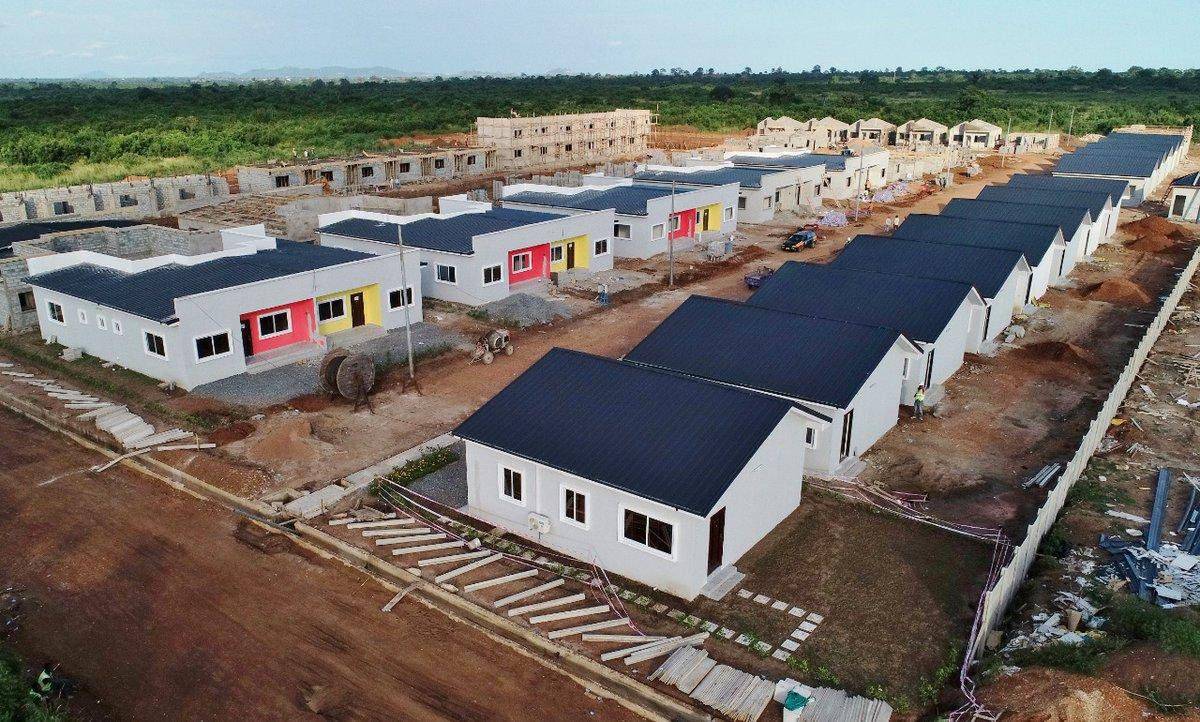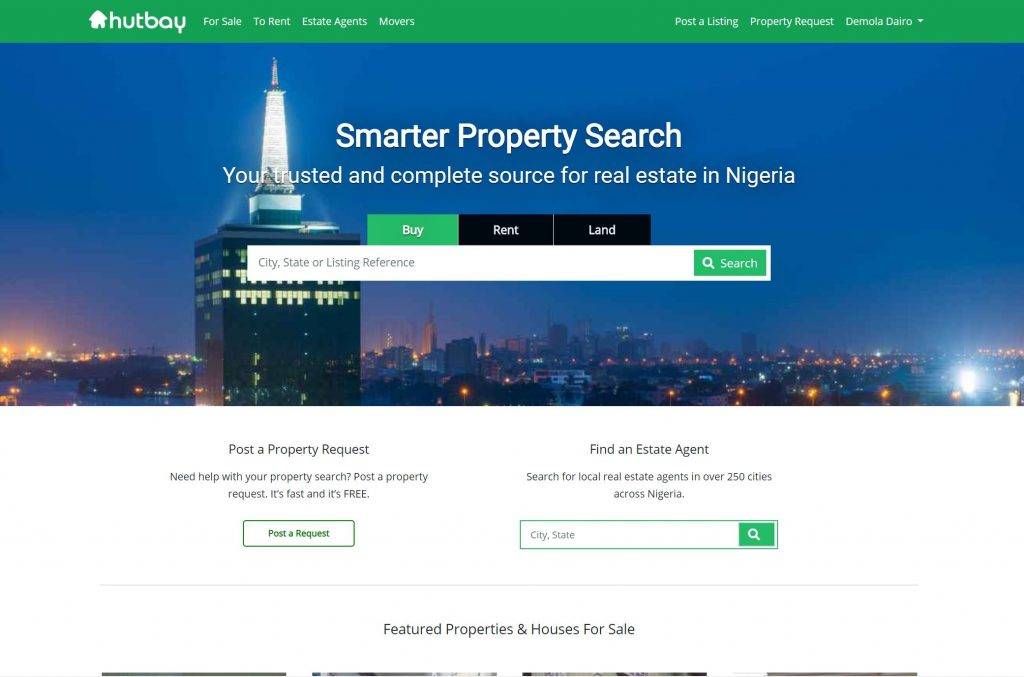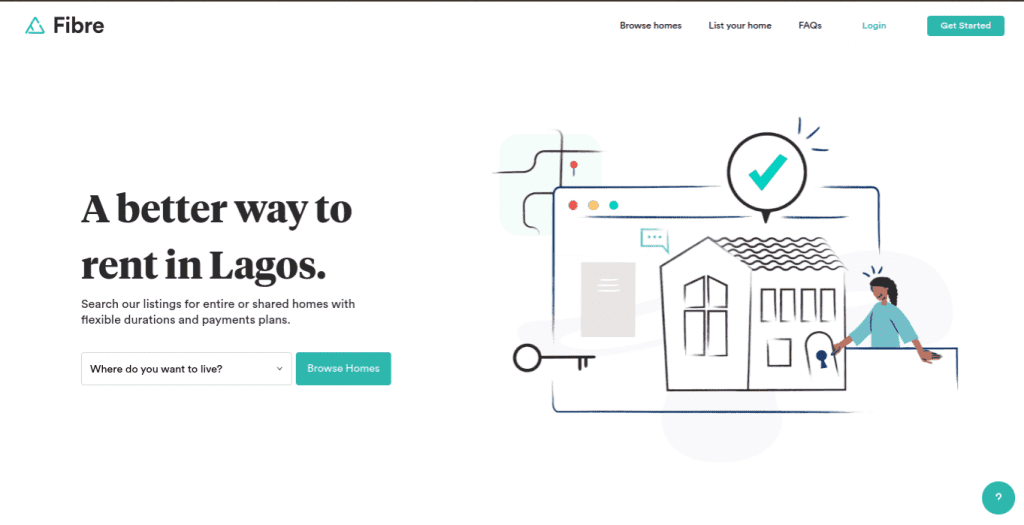In Search For Rental Deals – Here Are 4 Nigerian Realtech Startups

With more than 190 million people, Nigeria is the most populated place in Africa. As a result, the West African country needs more housing, especially for migrants moving to the city in search of greener pastures. The worth of this market in Nigeria cannot yet be ascertained, but it could be worth USD 22 Bn, and that may not be far from the truth.
The fifth largest contributor to the country’s GDP, the Nigerian real estate sector has had its fair share of ups and downs. There is a 4.3 percent increase in yearly urbanization, but it is concentrated only in a few states, most active of them which is Lagos.
While other Nigerian states have a long way to go to hot up its property activity, the Nigerian Bureau of Statistics recorded a 0.72 percent increase in the country’s GDP in Q2 2017 – an improvement compared to the figures in the same quarter of the previous year. In Q3 and Q4 2017, positive figures 1.40 percent and 1.92 percent emerged.
The average 3-5 bedroom apartment in Lagos is as high as NGN 308,000,000 for developed areas. Even in the emerging regions such as Ibeju-Lekki (the New Lagos), you still need to have deep pockets to buy a single plot of land.
That said, there’s hardly any reason entrepreneurs would not want to capitalize on the fact that these numbers will grow. If you are looking for housing in Nigeria or want to know who’s playing in the country’s realtech sector, here are four.
PropertyPro

A leading real estate platform in Nigeria, PropertyPro was founded by Fikayo Ogundipe, Sulaiman Balogun, Oluwaseyi Ayeni and Oladapo Eludire, all of whom started the company with individual USD 400 in personal savings.
The domain started off as Estanode.com back in 2012, after which USD 23 K in funding from Spark Accelerator (founded by Jason Njoku) made them rebrand to ToLet.com.ng.
In 2018, the quad decided to finally change its name to PropertyPro – a name that encompasses the entirety of sub-sectors in real estate. The startup which acquired Jumia House (Lamudi) for an undisclosed amount, boast of 600,000 property listings by 10,000 agents and a subsidiary moving company known as MoveMe.
In 2016, PropertyPro received another funding of USD 1.2 Mn from Frontier Digital Ventures, an investment that went into product development, marketing and growth.
HutBay

This realtech startup is one of the incubatees of IDEA Nigeria. The company launched in 2013, growing to 14,000 agents and 5,000 listings in 2015 – the same year it launched movers directory.
The additional service allows movers to get and compare quotes from removal companies and rate them online by connecting individuals with the said companies.
HutBay was founded by Owolabi Olatunji, whose business mission is to make it possible for real estate agents to have custom web pages to enhance their online presence, ultimately increasing the odds for these middlemen.
In an interview, Olatunji said: “Real estate agency is primarily a mobile and offline profession. Information technology (IT), as it were, is not the forte of real estate professionals. However, more and more real estate consumers are going online to find property and property-related services.”
MyPadi

Due to the hassle of student accommodation and perhaps the un-need to stay alone, Nigeria undergraduates often have to go off-campus and coexist mutually in a resident. MyPadi is making its money from that reality. The startup, basically targeting Nigeria students, helps people find hostels as well as roommates in Nigeria.
The accommodation platform was launched in 2016, after which it was in the reception of seed funding from EchoVC. The realtech was founded by Joel Amawhe, a graduate of Computer Science from the Delta State Polytechnic, Delta State, Nigeria. This startup also has its fair share of rebranding – from Studacom.ng to HotelsVilla.coim.
Save the fact that MyPadi has more than 5,000 vetted rooms for students in over 60 Nigerian tertiary institutions; the company received an award from NITDA in 2017 as the best e-housing startup of the year.
The firm also hoisted the Nigerian flag at GITEX 2017 in Dubai, and got a USD 5 K grant funding injection alongside 3 months business advisory service from Accenture Nigeria, under the auspices of the National Economic Summit 2017.
Fibre

Founded in 2016, this realtech acts as a reliable middleman between landlords and accommodation seekers in who would then become tenants if things do go as planned. Due to the hitches encountered by Lagosians with scam-like deals, untrusted agents and sexist landlords, this intermediation does a solid to ensure trust.
The startup has guaranteed USD 1.5 Mn worth of rental payments to landlords, and its main product currently lists no less than 200 rental units, housing about 250 members all over Lagos with a waitlist of more than 5,000 people.
Fibre, founded by Obinna Okwodu, also works with Lagos landlords to allow professionals to pay their rent every month. The platform offers shared and entire spaces and also focuses on residential accommodation. This is not a short-let service, because customers are allowed to stay in a rented property for up to a year.